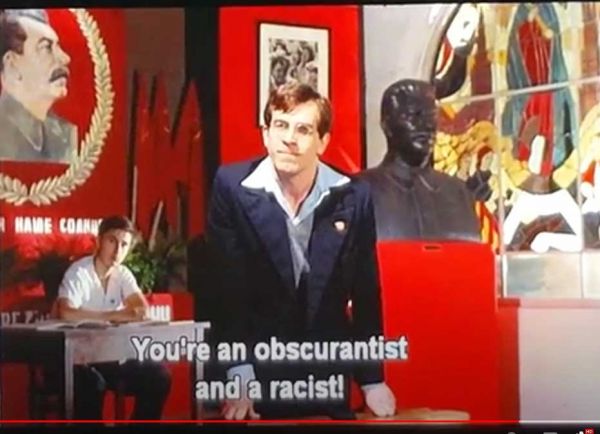Caviar Gauche, part I
Soviet Sympathizers
Among leftists and Marxists, the term "Caviar Gauche" or "Gauche Caviar" (translated literally as "Left-wing Caviar") denotes a measure of contempt toward wealthy people who affect a left-wing political stance, but live a life of wealth and leisure. Germans define the same personality as "Salon Bolschewist." The British use the term "Smoked-salmon Socialist."
As a writer, I find myself drawn again and again to study the Soviet Union, its history, communist politics and economics, the curious hold it has had Western intellectuals and artists, and the harsh reality of the life it created for its people, both within Russia and outside it. More than anything, the Soviet Union pursued criminal, if not crazed, intentions—murdering millions of people for reasons that are unfathomable in a civilized society.
By the mid-1930s, one man defined true communism, and that was Joseph Stalin. Even in America, if you supported some other deposed or murdered Soviet leader, you took your life in your hands. Several Soviet leaders disagreed with Stalin, like Trotsky and Bukharin—both of them Jews—and paid with their lives.
I also have wondered why the number of Communist "sympathizers" in the United States and other Western countries so greatly outnumbered actual Party members. I belong to several organizations and support their work, but I would not call myself a "sympathizer," because it sounds detached or passive, no matter that "sympathy" conveys a caring emotion.
You can sympathize with charitable work and not support it, but if an American sympathizes with the Soviet Union, doesn't it mean that he condones or sympathizes with Stalin's "work"? He would not refuse to become a member because of the atrocities Stalin committed. If a sympathizer does not join because he does not sympathize with Stalin's work, why become a sympathizer in the first place?
I think I know the answer, now. I realized it recently when I watched the movie Europa! Europa! for the tenth time. Agniezka Holland directed it, filming it in Poland and Germany, and releasing it in America through Orion Pictures in 1990. It concerns a Jewish teenager in Germany—the son of a shoe-store owner—before World War II, with dialogue entirely in Russian or German.
Salomon Perel, called "Sally" by his friends (pronounced"Zah-lee") flees Poland at the beginning of the German invasion of Poland and lands in a Soviet orphanage. The directors of the orphanage interrogate Sally and the other boys about their parents' lives and their own attitudes. Sally admits that his father ran a shoe-store. The supervisors at the orphanage call him down for his "bourgeois attitude." Their stance against the Bourgeoisie completely intimidates the boys and leaves them in fear for their lives; so they become committed Communists right away.
The many trendy left-wingers in their well-appointed apartments in New York City, or their swell houses in Greenwich and Westport would never have risked an interrogation by Communist Party supervisors, because they would have had to admit that they had plenty of dough. They financially supported the Communist Party; they parroted the silly nihilistic slogans of the Soviet dictatorship; but they did not want to part with all that money, which they would have been compelled to do, as Party members.
Their secret double-standard left them in the vulnerable position, since the Communist Party knew already of their wealth. The Party could use its knowledge to extort the sympathizers to do whatever it wished, by threatening to expose their hypocracy and embarrass them, thus giving the Party some leverage over them.


